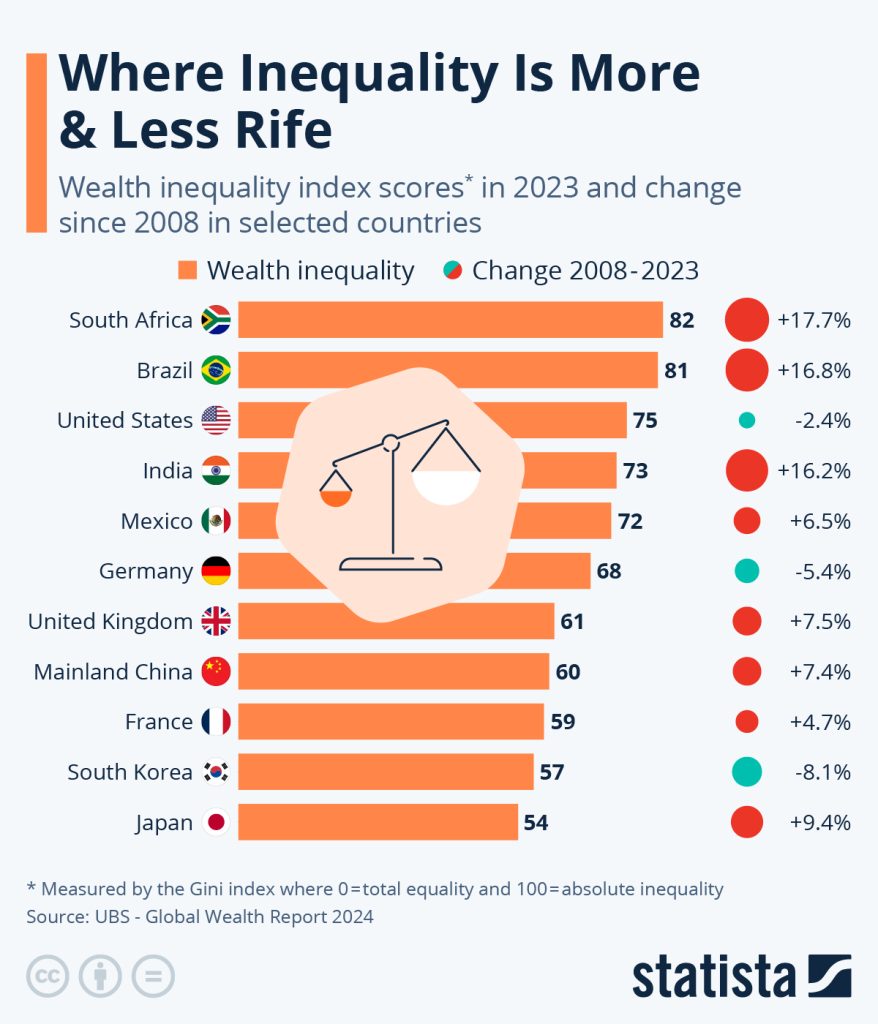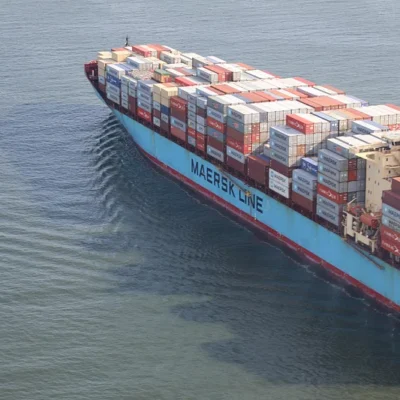The global economy is greatly concerned about wealth inequality, as evidenced by the wide variations observed in wealth inequality indices among various nations.
According to a Union Bank of Switzerland report, South Africa tops the list with an inequality index score of 82 out of 100, where 0 represents total equality and 100 represents absolute inequality. Since 2008, there has been a jump of 17.7%.
Other nations with exceptionally high scores were Mexico (72) and the United States (75), Brazil (81), and Sweden (75). Belgium, meanwhile, was at the other end of the table with a score of 46 as opposed to 51 in 2008—a difference of minus 10.7%.
Here is the chart (Source: Statista):

Since 2008, North America’s inequality gap has narrowed somewhat; the US has seen a 2.4% decline in inequality during that period. However, inequality has increased throughout much of Eastern and Southern Europe and Asia.
The wealth inequality increased by 16.8% in Brazil and 6.5% in Mexico. India saw an increase of 16.2%, Singapore saw a rise of 22.9%, Indonesia saw a rise of 15.1%, China saw a rise of 7.4%, and Japan saw a rise of 9.4%. Hong Kong and South Korea defy the regional average, showing declines of 5.9% and 8.1%, respectively.
The report states that although inequality is rising in rapidly expanding markets, middle-class economies are seeing faster growth in middle-class income segments than higher-class economies.





